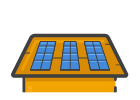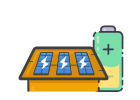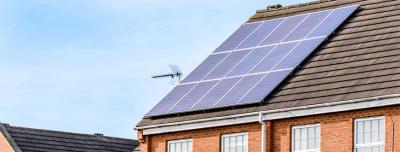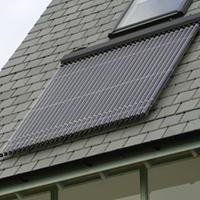Government consultation proposes 87% cut to solar Feed-in Tariff
On 27 August 2015, the Department of Energy and Climate Change published a consultation outlining the proposed reductions to the Feed-in Tariff (FiT). These potential alterations will come into effect from January 2016 and cover solar installations in England, Scotland and Wales. We took a look at what has been proposed, what these cuts mean and why you might want to have solar panels installed sooner rather than later...
What the government consultation proposes
Slashing the Feed-in Tariff
DECC has proposed to reduce the FiT by 87% for domestic solar installations. This would mean a substantial drop in the amount a homeowner is able to earn from generating electricity through solar (Generation Tariff). In fact, according to Money Saving Expert, a system that currently sees payments of £435 per year could drop to just £55 per year!
A move from the Retail Prices Index to the Consumer Prices Index
Currently the FiT is linked to the Retail Prices Index (RPI) - a measure of inflation. The consultation proposes that this changes to the Consumer Prices Index (CPI). Since the CPI is generally lower this could mean a smaller return from the FiT over time.
At the moment, this consultation is not set in stone but it is very likely there will be deep cuts to the FiT. It will end on 23 October 2015 and it's important to note that if it is decided that the measures cannot make the FiT affordable and sustainable then there could be an end to the generation tariff altogether (which would occur in January 2016). You can view the consultation and learn more about it on the Gov.uk website.
The impact on Rent-a-roof 'free' solar
The massive reduction in FiT payments won't just affect homeowners looking to benefit directly from the programme. Rent-a-roof schemes which offer 'free' solar panels to customers may also suffer a large blow. These schemes work by offering homeowners panels for their roof free of charge. The homeowner is then able to use the electricity generated by the panels, whilst the installer receives the FiT payments for the system (hence why they are able to offer the panels and installation for 'free').
With the payments being so heavily reduced, there will no longer be the same incentive for installers to use this exact Rent-a-roof system. Unless companies offering this service adapt, 2016 could well see a huge blow to this part of the solar market.
Why solar is still worth it
- You can still benefit from the Feed-in Tariff
Whilst there will still be plenty of reasons to go solar after January 2016, having your system installed and registered before then will be the only way to lock in the FiT rate before it is slashed. Since the consultation doesn't propose any changes to the export tariff, it can be assumed that this payment will still be available after January.
- Greatly reduce your bills (or cut them completely!)
Solar panels reduce your energy bills by providing your home with energy during the daytime. If combined with a solar storage batteries they could even power your home completely meaning you no longer need to buy energy from the grid in the evening.
- Get protected against rising energy costs
Generating your own energy means you are not as reliant (if at all) on energy suppliers, protecting you from any price increases.
- Reduced Co2 emissions
One benefit that will always remain constant with solar power is that it is better for the environment than using electricity from the grid. According to the Energy Saving Trust a typical domestic solar PV installation can save over 30 tonnes of Co2 in its lifetime.
- Panels are incredibly cheap right now
Solar panel prices are a fraction of what they were 5 years ago, meaning installation costs are at an all-time low. In 2010 a typical 4kw system would cost around £12,000 but now it could cost as little as £5,000.
Not to worry if you already have solar panels installed
If you already have a solar panel system installed in your home, there is no need to worry about these proposals as they will not affect the FiT you receive. You will continue to earn the rate that was in place when you registered your solar panels until the end of that guarantee. DECC have also confirmed that those already receiving the FiT will not be affected by the shift from the RPI to CPI.
How to benefit from the Feed-in Tariff before the cuts
If you want to take advantage of the FiT and lock in the current rate for the next 20 years, we recommend having your system installed and registered as soon as possible – before January 2016. You will also need to ensure the installer you hire is MCS accredited in order to benefit from the FiT payments. Solar Guide can provide you with quotes to compare from MCS accredited companies - simply fill out our short online form to get started.
Find local, MSC certified Solar Installers
Start your quote
Find local, MSC certified Solar Installers
















